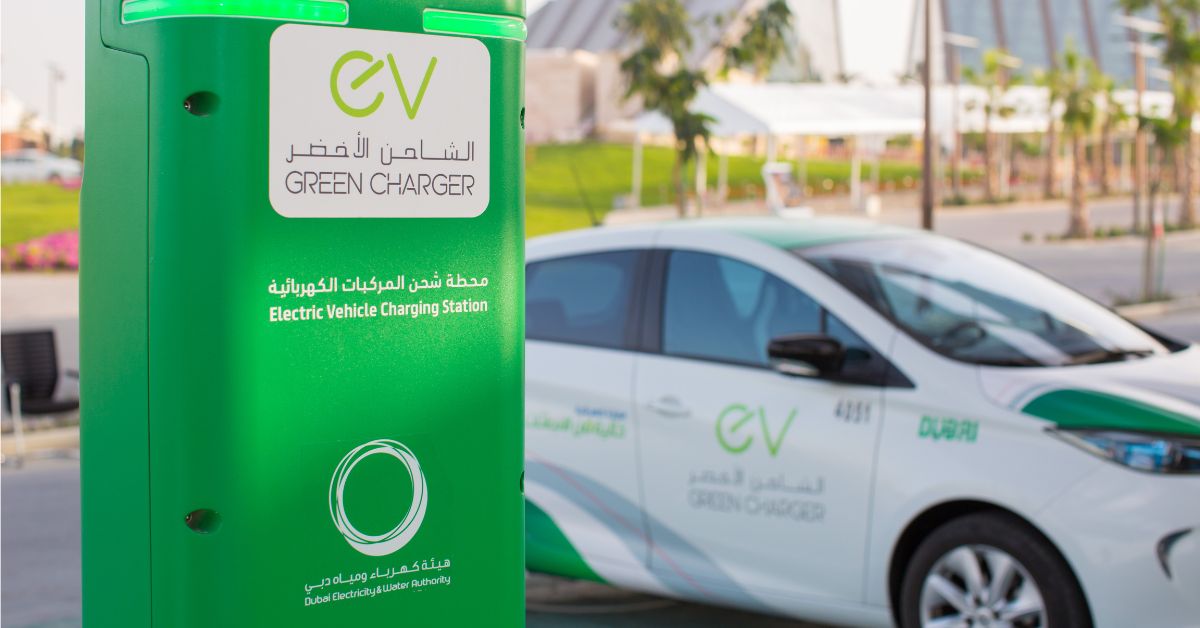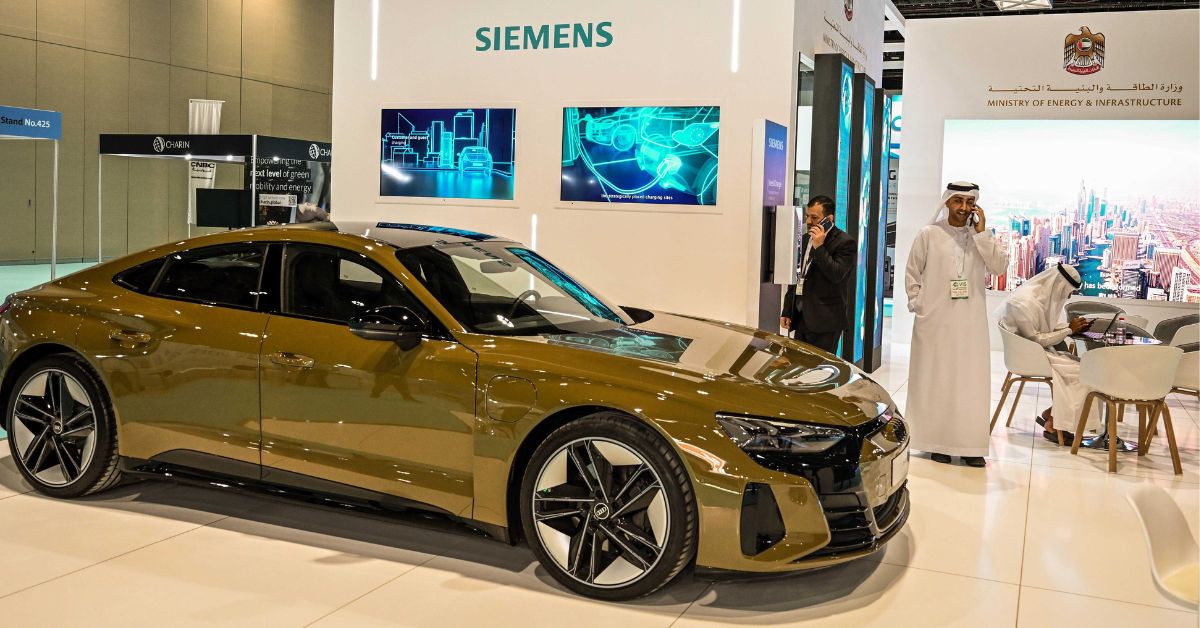ABU DHABI — The UAE has achieved a notable advancement in electric vehicle (EV) preparedness, ascending to the top of regional rankings and securing the seventh spot globally. This progress underscores the nation’s commitment to achieving carbon neutrality by 2050 and its dedication to fostering sustainable transportation methods.
A recent report by Arthur D. Little (ADL) indicates that the UAE, which held the eighth position in 2022, has climbed one rank with the goal of integrating approximately 42,000 electric cars on Dubai’s roads by 2030.
The “Global Electric Mobility Readiness Index (GEMRIX) 2023” report highlights the EV Green Charger initiative as a pivotal element in this effort, having notably increased the number of charging stations across the UAE. With around 700 stations currently in place and more on the way, the infrastructure is scaling up to support the escalating number of electric vehicles.
The initiatives of the United Arab Emirates are resonating with consumers, as evidenced by 82 percent of residents expressing willingness to consider an EV for their next vehicle purchase. This sentiment reflects the growing comfort and acceptance of electric vehicles among the public, which is likely to catalyze further expansion of the EV market.
To accelerate the shift toward sustainable transport, ADNOC Distribution, the UAE’s premier fuel and convenience retailer, along with Abu Dhabi National Energy Company, have initiated a joint venture named E2GO. This enterprise aims to cater to the evolving needs of EV consumers and promote widespread adoption of electric vehicles in Abu Dhabi.
At A Glance * UAE ranks 7th globally in electric vehicle (EV) preparedness, leading the region. * The country climbed from 8th to 7th place since 2022, reflecting a commitment to sustainable transport. * It targets to have approximately 42,000 electric cars in Dubai by 2030. * EV Green Charger initiative has installed around 700 charging stations, with more planned. * 82% of UAE residents are considering an EV for their next vehicle purchase. * ADNOC Distribution and Abu Dhabi National Energy Company launch E2GO for EV adoption. * Norway leads global EV readiness, with China rapidly advancing in the sector. * UAE and Hong Kong score 57 in the Emerging EV Markets category, indicating strong e-mobility commitment. * UAE's government initiatives have expanded the EV-charging network, increasing consumer readiness. * UAE, Thailand, and India offer attractive opportunities for EV market development. * The intense climate of the UAE poses challenges for EV battery performance and durability. * UAE's shift from a fossil fuel-based economy to sustainable alternatives requires significant investment and planning. * Addressing range anxiety is essential for the adoption of EVs in the UAE, known for long-distance travel.
On a global scale, the report notes a significant surge in EV adoption since the previous year. While Norway continues to lead in electric vehicle readiness, China is rapidly closing the gap, signaling a dynamic and competitive international EV landscape.
The report delineates three distinct groups of countries making strides in expanding EV usage, taking cues from the frontrunners in the market.
It suggests that while environmental considerations are the primary drivers for the transition to EVs in wealthier nations, the cost-effectiveness of these vehicles is a more compelling factor in less affluent regions.
Emerging EV markets poised for expansion
The United Arab Emirates and Hong Kong, each with a score of 57, are at the forefront of the Emerging EV Markets category. Their commitment to e-mobility is evident despite facing operational and financial challenges. The infrastructure and acceptance of electric vehicles in these markets are advancing swiftly.
The burgeoning adoption of EV technologies is largely due to a culture that encourages entrepreneurship and a dynamic startup ecosystem.
In the UAE, government initiatives have led to a broader EV-charging network, enhancing consumer readiness to embrace electric vehicles for their future transportation needs.
Moreover, the UAE, along with Thailand and India, presents enticing prospects for businesses looking to carve out a niche in the EV market with innovative electric vehicle offerings and charging solutions.
With steadfast support from the government and collaborations with the private sector, the United Arab Emirates is positioning itself as a leader in e-mobility and sustainable transportation.

Challenges posed by climate
The shift toward electric vehicles in the UAE comes with its own set of unique challenges.
Primarily, the nation’s intense climate, marked by extreme heat, presents a significant obstacle to battery performance and durability. Elevated temperatures can impair battery efficiency and reduce their operational lifespan, necessitating advanced cooling systems and cutting-edge battery technologies to overcome these issues.
Moreover, the UAE’s longstanding reliance on fossil fuels, bolstered by a prosperous petroleum industry, poses a challenge in shifting public perception towards sustainable alternatives. The comprehensive charging infrastructure needed to facilitate widespread adoption of EVs requires significant investment and careful planning. It is essential to strike a balance between this expansion and the provision of affordable and accessible charging options.
It is critical to address the range anxiety that many prospective EV owners feel, especially in a country where long-distance travel is common. Surmounting these hurdles calls for a concerted effort among the government, private sector, and consumers to propel the sustainable future of transportation in the UAE.








